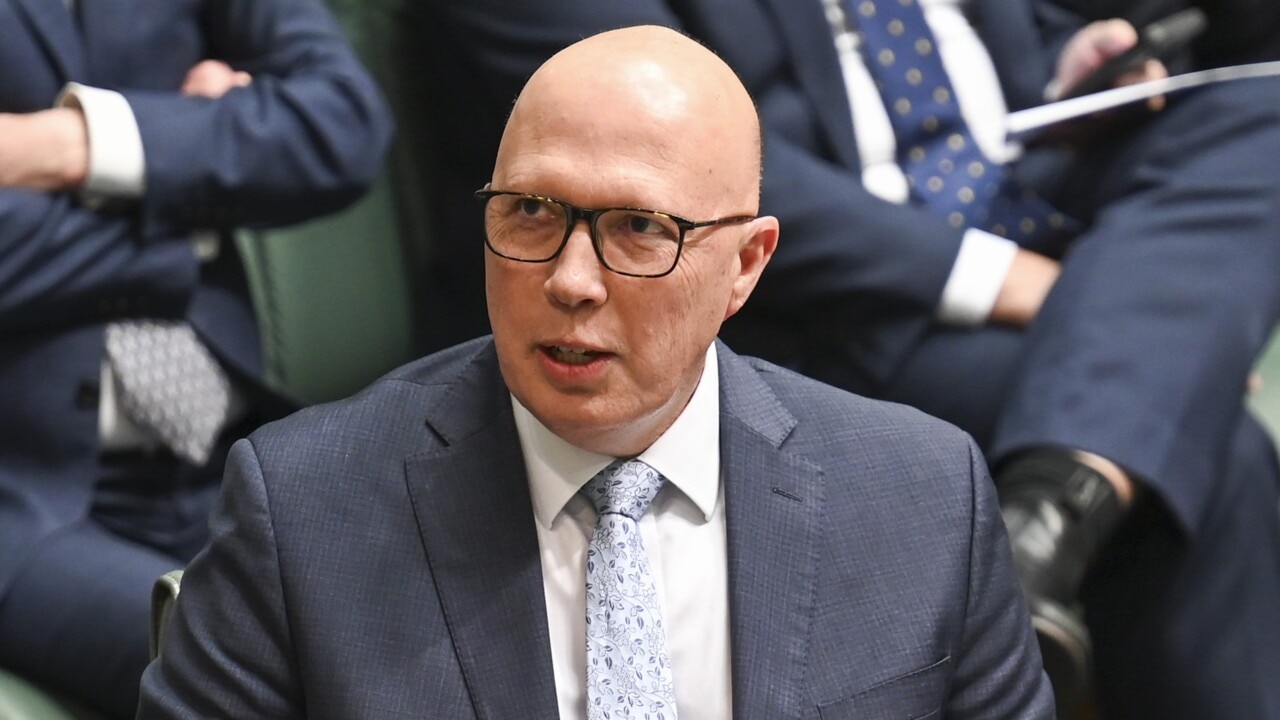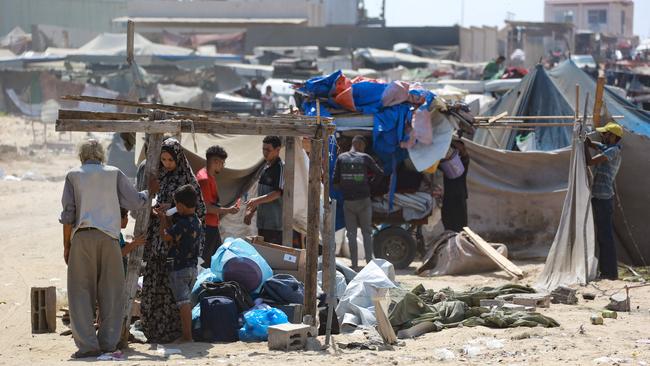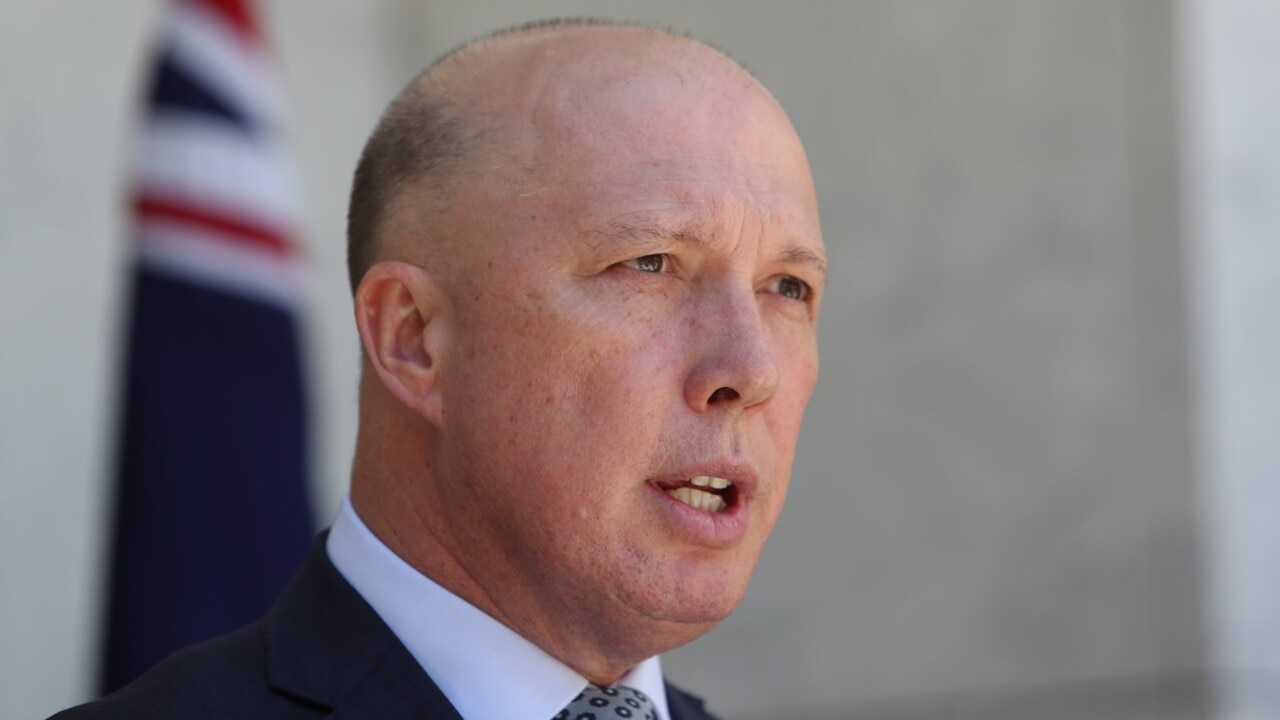Fast lane out of Gaza: Australia among most generous for visas in world
International data reveals Australia’s nearly 3000 approved visas for Gazans since Hamas’s October 7 terrorist attack on Israel far exceed the numbers accepted by the nation’s Five Eyes allies and like-minded countries.

Australia is one of the most generous nations in the developed world in accepting Palestinians from Gaza, new figures suggest, fuelling criticism of the Albanese government’s use of tourist visas for those fleeing the war zone.
International data compiled by the opposition indicates Australia’s nearly 3000 approved visas for Gazans since Hamas’s October 7 terrorist attack on Israel far exceed the numbers accepted by the nation’s Five Eyes allies and like-minded countries such as France.
Belgium is a rare outlier, approving 2506 Palestinian refugees since January and 3249 last year, while Greece and Turkey are also dealing with large numbers of Palestinian asylum seekers.
As the government considers offering permanent visas to up to 1500 Gazans already in the country, opposition home affairs spokesman James Paterson said Australia was unique in its willingness to offer fast-tracked visas to thousands from the conflict zone.
“The Albanese government must urgently explain why Australia appears to have accepted more people from Gaza than almost any other country in the developed world,” Senator Paterson said. “Our closest allies and friends – including Five Eyes members the US, UK, Canada and New Zealand – are all taking a much more cautious approach and have accepted only a fraction of the intake we have.”
He said Home Affairs Minister Tony Burke needed to suspend plans to issue fresh visas to Gazans until he could assure Australians that “proper checks have been done”.
The demand came as Anthony Albanese sought to turn the tables on the opposition, revealing the former Coalition government issued more than 1000 tourist visas to residents of the occupied Palestinian territories.
“During that entire time Hamas controlled the Gaza Strip. They took over in 2006,” the Prime Minister told parliament.
He insisted his government was heeding the advice of national security agencies.

Mr Albanese attacked Peter Dutton’s call last week for a halt to arrivals from Gaza, arguing Palestinians were unable to leave the territory anyway.
“That border crossing closed in May. Did they say anything about it in May? In June? In July? The beginning of August? Not a peep,” he said. “It’s up to those opposite to explain why it is that they were silent about all of this for all of that time.”
The government has approved 2922 visas for holders of Palestinian travel documents since the start of the war, including more than 2560 tourist visas, while rejecting more than 7100 applications. Mr Burke refused to say in question time whether any visas for Gazans had been cancelled but official figures show 43 have been revoked and 20 of those restored on appeal. Hundreds of those already in the country have now lodged asylum claims, enabling them to remain in Australia until their applications are approved or rejected.
As of July 31, the US had accepted 17 Palestinian refugees since the October 7 attack. It has no special entry arrangements for Palestinians but has introduced measures for eligible Palestinians already in the US to have their visas extended.

The UK has issued 168 protection visas to Palestinians since October 7 but it’s unclear how many have entered the country on other visa classes since October last year. New Zealand has accepted 153 Palestinians for temporary and residence visas and is prioritising applications for those with family in New Zealand.
Canada’s Immigration Minister Marc Miller said in June that just 254 Palestinians had received temporary visas and 41 had received family program visas, while almost 3000 applications were still being processed. While Canada has expanded its cap on extended family visas for Palestinians from 1000 to 5000, it requires applicants to submit to face-to-face interviews and biometric testing in Cairo.
France, which had accepted 260 Gazans by April this year, requires applicants to submit visa applications and undergo biometric tests in Israel, making it technically impossible for them to apply. Greece has faced a surge in Palestinian asylum applications, including 6713 last year and 1106 to April this year. It’s unclear how many the country has approved.

In April, Italy said it had accepted 156 Palestinians, while humanitarian agencies have criticised Spain for doing little to help those fleeing the conflict.
According to Turkish data, more than 18,000 Palestinians were registered as irregular migrants in the country in 2023 – nearly triple the previous year’s total. There are no official statistics available on how many have received protection visas.
ACT independent senator David Pocock said Gazans in Australia should be placed on humanitarian visas.
“Let’s remember many Palestinian Australians who are desperate to try and get their family out of Gaza,” he said.
The Department of Home Affairs has ultimate responsibility for the screening of visa applicants, with selective referral to ASIO for security checks.
The Australian understands concerns have been raised inside the government over its decision to use tourist visas for Gazan entrants that do not require the same level of security checks undertaken for past entrants from Afghanistan and Syria. It is understood reviews have been conducted to apply greater levels of scrutiny than were originally imposed by the government.
The speed of visa processing for Palestinians residing in Gaza and the West Bank contrasts with lengthy delays in processing humanitarian visas for Afghans, including those who worked alongside Australian Defence Force personnel.

Under current settings, the government has allocated 26,500 dedicated visa places for Afghans to migrate to Australia under the offshore humanitarian program through to 2026.
The ADF has extended its Afghan Locally Engaged Employee Program for those who worked with the Australian government in Afghanistan and are at risk of harm as a result of their work.
Defence says the program will now conclude “only after all cases have been assessed and finalised … all certified LEE applicants will continue to be afforded priority processing for Humanitarian visas by the Department of Home Affairs”.
Between August 2021, when the Taliban returned to power, and December 31 last year, the government had finalised only 19,155 of 48,801 offshore humanitarian Afghan applications.
After Pakistan launched a crackdown targeting people without valid visas, including Afghans wanting to travel to Australia, government officials have been forced to scramble to provide letters of assurance to those holding Australian visas or certified as Afghan locally engaged employees.
The ALP national platform enshrined last year committed to progressively increase the refugee resettlement intake to 10,000 places a year with an “aspiration” to lift the humanitarian intake to 27,000 places a year.
Mr Albanese has resisted pressure from Left faction powerbrokers and crossbenchers to authorise a major lift in the humanitarian intake, amid criticism over Labor’s national security and border protection record.





To join the conversation, please log in. Don't have an account? Register
Join the conversation, you are commenting as Logout